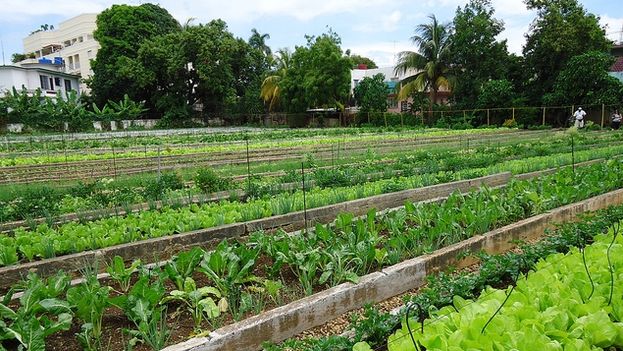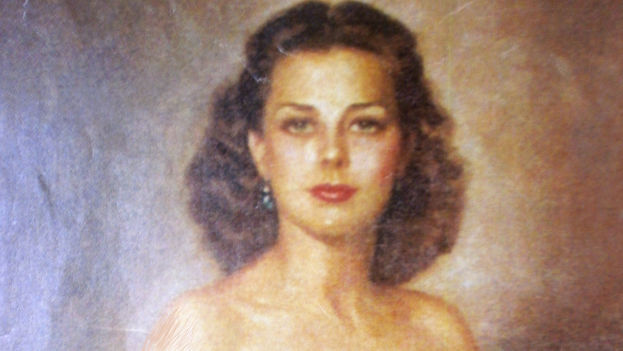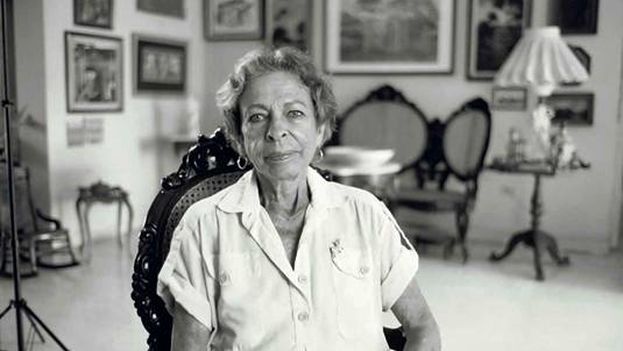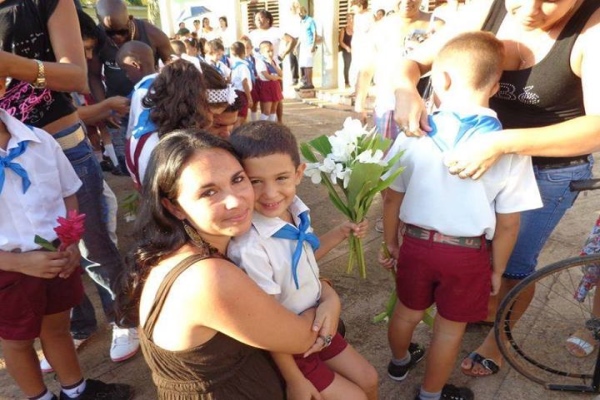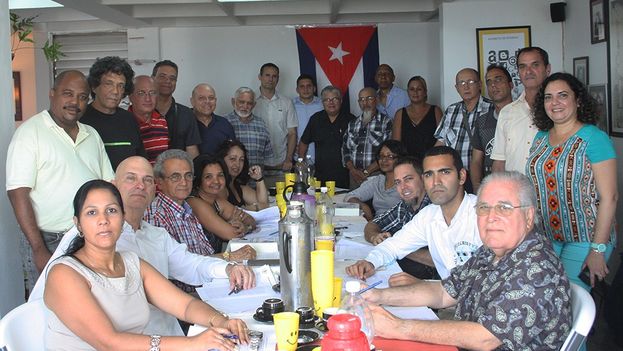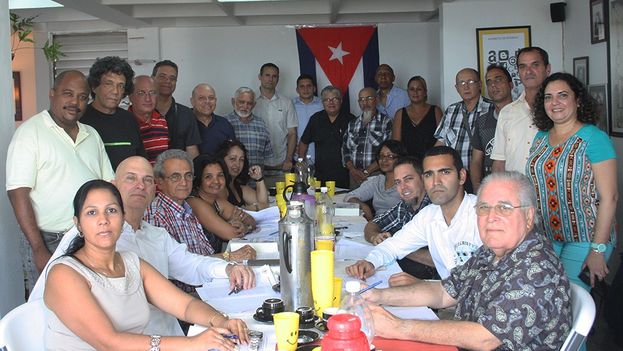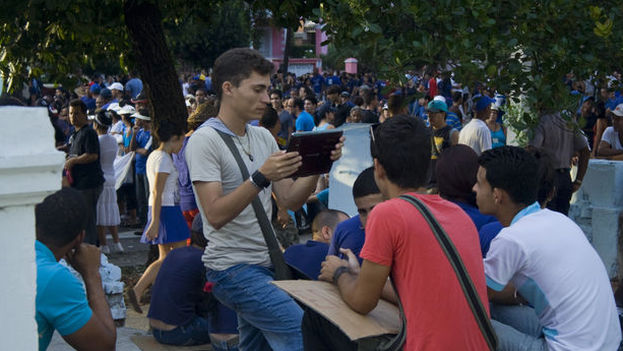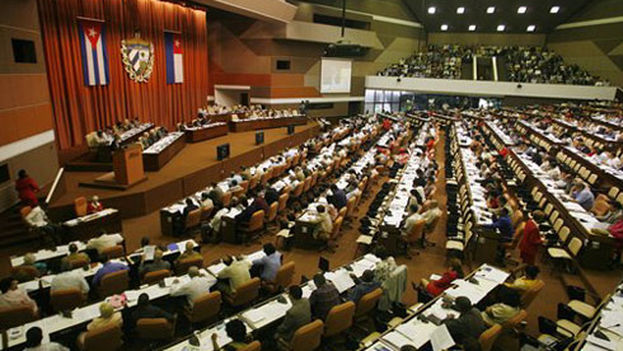Paradoxically, not even the most politically correct academic discourse of a second-hand law officer can hide certain flaws that reveal the passive role of Cuban women since, with the arrival of F. Castro to power, their autonomy was appropriated and, along with it, their ability to freely associate to defend their gender interests, issues relating to the family, the right to choose their children’s education, etc. In fact, it can be argued that the Revolution of 1959 put to rest even the last vestiges of the Cuban feminist movement continue reading
.
That explains why, when Dr. Mesa refers to “those who conceived and were involved in [the code’s] drafting,” she mentioned ten people’s names and only one of them was a woman, which means that the Family Code, which “enabled Cuban women to fly” was – just like the Revolution itself and all of its laws — essentially conceived and drafted by men, though by then 16 long years had elapsed under a system of supposed gender equality.
Nevertheless, we must be aware that this law, de jure, benefited the interests of minor children born in or outside marriage, it favored the allowing of divorce, and constituted a guarantee for families based on informal (or consensual) marriages, and for the right of children born from those unions. Another question would be to determine how effective the law has been in practice, if it has been applied extensively, and how the subject of civil law would be justified at a preset ideology, when sanctioning the obligation to establish a family and raise children “according to socialist standards.”
Cleaning up history
So, beyond the official vice of collecting calendar anniversaries for whatever reason, the issue moves us to question and to calling to mind, not just because of the usual compliments to justice and female equity, achieved thanks to the Revolution, or because of the monumental tackiness of adopting the law on Valentine’s day, but for the perversity of intentionally misrepresenting the role of women in Cuban history, omitting the unquestionable legal gains made by the women’s movement during the Republican period.
An in-depth historical analysis of the role of women since the Cuban wars for independence in the nineteenth-century would be extensive, but it is essential to recall the Republican period because it was then that the foundations of legal conquests were seated, from a women’s movement that — while not claiming the participation of women in politics, as was happening in developed countries, such as the US — at least was struggling for a larger share, employment opportunities, and social protection connected with maternity and family.
Thus, as early as 1914, discussions began about the relevance to legislating divorce. In 1916, a legal bill was presented guaranteeing married women self-management of their assets – managed by their husbands, fathers or guardians until then – which was approved in May, 1918. That same year the divorce bill was passed.
As for educational and cultural strides, by 1919 Cuban women had reached the same level of literacy as men and in the decade of the ‘20s proportionately as many women graduated from the Cuban University as did from American universities. [1]
Between 1923 and 1940, Cuban feminist groups influenced the political forces in support of legislation for women’s rights and founded several associations and media publications to defend women’s interests. There were also women’s associations that promoted class actions, such as the Women’s Labor Union, an organization that placed the issue of working class women ahead of women’s suffrage rights. [2]
At the same time, there was an increase in women’s activism aimed at influencing legislative decisions, partnerships were established with various influential political and economic groups – entirely controlled by men — there were street demonstrations, ideas about women’s rights were published in newspapers and the radio, obstetric clinics were built, night schools for women were organized, women’s health programs were developed and contacts with feminist groups abroad were established. [3]
It is true that women just took part in legislative debates, but the demonstrations organized by activists and the first feminist groups of the time were instrumental in modifying civil and property rights that changed the rules of property management — a distinctly masculine role until then — and along with them, of women within the family, thus taking a significant step forward for women’s rights compared to other countries in the region over the same period.
New laws favored citizenship status of women, establishing their autonomy and rights, which proved a decisive factor for the development of women’s movements in the following years.
In 1923, with the participation of 31 associations, the first women’s national congress was held; the second one in 1925, saw the participation of 71 associations.
In 1933, a strong feminine campaign claimed the right to vote (which had been proposed by Ana Betancourt since the previous century), which was formally acknowledged in the
Interim Constitution of 1934
In 1939, the Third National Congress of Women was held, whose final resolutions demanded “a constitutional guarantee for women’s equal rights,” a demand which was discussed in the Constituent Assembly and finally recognized in Article 97 of the 1940 Constitution: “Universal, equal, and secret suffrage is established for all Cuban citizens as their right, duty, and function.” [4]
Thus, in spite of the traditionalist nature of the feminist movement in Cuba, of the shortage of legal mechanisms and limitations of our ancestral culture and idiosyncrasies, Cuban women could vote and be legally elected to public office even before many suffragists in more developed countries.
To summarize, important legal strides were attained during the Republic, as important as the right to vote, full capacity to make decisions about property, the paid maternity law (though that did not include domestic or agricultural workers), recognition of the rights of “illegitimate” children and a gradual increase in protection of the rights of women workers. In fact, those gains during the Republican era were influential in a notable increase in the incorporation of women into paid jobs, especially in urban areas, a process that was becoming stronger in the years before the arrival of the Castro regime.
Two readings of the same Code
Now the official press and its cohorts of useful shysters, in the style of Dr. Olga Mesa, aim to score for “the Revolution” of 1959 what were legal conquests of Cubans many decades before. While it is true that those female fighters of the Republic did not free themselves of patriarchal subjection – cultural patrimony that even today has not been totally overcome — or participate actively in national politics, they launched a new feminine social model and created favorable conditions to advance to higher levels of emancipation, compared to many countries in the world.
In the years following 1959, the ideology that hijacked the power quickly appropriated all spheres of socio-economic and political life of the nation, including domestic areas. Thus, the full potential and aspirations of feminine equality became subordinate to the service of regime.
The rich tradition of the struggle of Cuban women was finally limited to “a present” on Valentine’s Day of this outdated and anachronistic law called “Family Code,” mechanically repeated in every marriage ceremony… as long as the ceremony takes place between Cubans.
I was able to evidence this these last few days, when I had the opportunity to attend the wedding in Cuba of a young Cuban woman, residing abroad for more than a decade, and her Spanish boyfriend. So, here is where “the Family Code” which — microphone in hand — was read by the celebrant before the spouses and guests, had been mutilated in its essence: the legal imposition of “educating children on the principles of socialist morality.” Since this was the case of spouses who do not reside in Cuba, they were released from such a legal aberration.
As an additional detail, there was no Cuban flag or Cuban coat or arms presiding over the ceremony. Perhaps what happens in these cases is that the services are paid for in foreign currency, and we already know that socialism takes a step back in the face of capital. Or perhaps it is just that, in family matters, capitalism really is “clueless.”
[1] K. LYNN STONER. De la casa a la calle, p. 184
[2] CASTELLANOS, DIMAS CECILIO. Desentrañando claves (inédito), Havana, 2011
[3] CASTELLANOS, DIMAS CECILIO. Desentrañando claves (inédito), Havana, 2011
[4] PICHARDO, HORTENSIA. Documentos para la historia de Cuba. Volume IV, Part 2, p.349
Translated by Norma Whiting
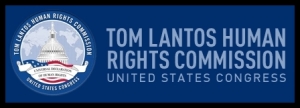 24 February 2015 — In December 2012, the Tom Lantos Human Rights Commission, together with the U.S. Commission on International Religious Freedom and Amnesty International, U.S., created the Defending Freedoms Project, with the objective of supporting human rights and religious freedom worldwide, with a particular focus on prisoners of conscience.
24 February 2015 — In December 2012, the Tom Lantos Human Rights Commission, together with the U.S. Commission on International Religious Freedom and Amnesty International, U.S., created the Defending Freedoms Project, with the objective of supporting human rights and religious freedom worldwide, with a particular focus on prisoners of conscience. This new recognition of Ángel Santiesteban-Prats is added to what he recently received on behalf of the German Eurodeputy, Dr. Christian Ehlerquien, who assumed the political sponsorship of the imprisoned Cuban writer.
This new recognition of Ángel Santiesteban-Prats is added to what he recently received on behalf of the German Eurodeputy, Dr. Christian Ehlerquien, who assumed the political sponsorship of the imprisoned Cuban writer.
